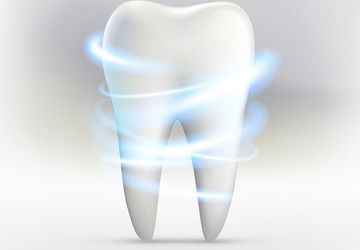New Study Suggests Dentin can be Strengthened by Grape Seed Extract
A new study from the University of Illinois at Chicago's School of Dentistry shows that grape seed extract could be beneficial in strengthening dentin, thus helping to prevent filling failure. Typically, resin fillings have a lifespan of five to seven years. Adding to that lifespan by strengthening dentin, thus promoting filling adherence, could save dental costs as populations age.

Grape seed extract may be on it's way to finding it's first official medical application in dentistry.
According to a new study from the University of Illinois at Chicago’s School of Dentistry, grape seed extract might be a new way to help make dentin stronger. By doing so, it could be possible to extend the life of resin fillings, since these fillings must firmly adhere to dentin over the long-term. Since more than 90 percent of adults younger than 64 years old have dental caries, grape seed extract could prove to be a solution for extending the life of fillings while helping to keep costs down for patients.
On average, resin fillings last from five to seven years in the typical patient’s mouth. One of the main reasons for this is the breakdown of the interface between the patient’s dentin and the resin material, which can occur as the result of weak dentin.
However, grape seed extract can potentially be used to make dentin stronger. Research has already shown that the extract can help damaged collagen repair itself. Since dentin is primarily composed of collagen, any damaged dentin could benefit from the application of grape seed extract.
Ana Bedran-Russo, associate professor of restorative dentistry, says, “When fillings fail, decay forms around it and the seal is lost. We want to reinforce the interface, which will make the resin bond better to the dentin. The interface can be changed through the use of new natural materials. The stability of the interface is key for the durability of such adhesive joints, and hence, the life of the restoration and minimizing tooth loss.”
Grape seed extract is produced from the crushed seeds of grape plants. While the extract does not currently have any official medical use, several independent studies have suggested its effectiveness in treating a variety of conditions, including inflammation and chronic venous insufficiency. It is also thought that grape seed extract has antioxidant and antimutagenic properties.
ACTIVA BioACTIVE Bulk Flow Marks Pulpdent’s First Major Product Release in 4 Years
December 12th 2024Next-generation bulk-fill dental restorative raises the standard of care for bulk-fill procedures by providing natural remineralization support, while also overcoming current bulk-fill limitations.